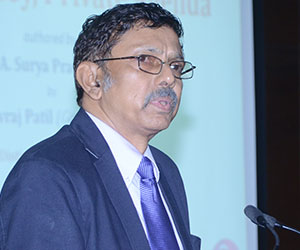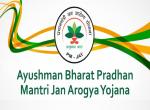Indians take pride in the fact that they are citizens of the world’s largest democracy and that despite poverty, under-development and fairly high levels of illiteracy, the democratic spirit in well and truly ingrained in the people.
While all this is true, it is also true that there are many nations in which the people exercise far greater vigilance and the democratic system functions far more efficiently. Currently, a mind-boggling 840 million citizens are on India’s electoral rolls but the country is way behind some other democracies when it comes to transparency in funding of political parties and spending in elections. As a result, while one can see democracy at work from the village to the national level, one can also see the vulgar impact that dirty money has on the working of political parties and on the electoral system. Some years ago, the Association for Democratic Rights (ADR) had estimated that 70 per cent of the funds flowing into political parties came via cash donations from unknown sources. Unless this is reversed, there will always be a question mark on the quality of India’s democracy.
Further, notwithstanding the frugal limits set by the Election Commission on election spending, candidates in the Lok Sabha and state assembly elections are known to routinely flout these directions. Until 1974, the limit set by the Election Commission for campaign spending in a Lok Sabha constituency in the big states was Rs. 1,50,000. However, we were told that all serious contenders in the fray spent around Rs. 2 million. Later, this limit was enhanced to Rs. 4,50,000 and revised yet again in a bid to bridge the gap between the legally permitted limit and the ground reality. Currently, the legal limit for election spending in a Lok Sabha constituency in the larger states is a fairly reasonable Rs. 7 million – more than what an “average” aspirant can muster to give a good fight – but successful Members of Parliament tell us that their election cost them Rs. 50 to Rs. 100 million!
In other words, electoral spending has completely spiralled out of control and is now beyond the reach of ordinary citizens. Needless to say that unless politics is funded by clean money and political parties, in turn, pick up “clean” candidates and provide them financial support, the system will remain hostage to the most corrupt elements in society and make good governance an unattainable dream.
The absence of transparency and accountability in the working and funding of political parties has been commented upon by the judiciary and various institutions over the years, but no one at the top has pondered over these issues and suggested corrective measures. Prime Minister Narendra Modi has been pressing for electoral reforms for some time now to bring down election spending. He has suggested that we restore the system of simultaneous elections to the Lok Sabha and the state assemblies. Another small but important step taken by his government in this regard is the introduction of electoral bonds to fund political parties.
These bonds may not be solve the problem entirely, but it’s the first important step to deal with the issue of political funding. The Interest-free electoral bonds can be purchased from State Bank of India for 10 days in the months of January, April, July, and October. They are available in various denominations including Rs 10 lakh and Rs one crore. The Finance Minister, Mr. Arun Jaitley announced this scheme during his budget speech last February. A donor can buy these bonds and give it to registered political parties. The parties can redeem them through their designated bank accounts and the identity of the donor is protected.
Alongside this measure, the government has taken a few more steps to cleanse political funding. It has banned cash donations of over Rs. 2000 to political parties (the earlier limit was Rs. 20,000 and was the source of huge inflow of black money into political parties) and also amended the law to ensure that companies are not required to disclose the names of the parties to which they make donations.
Discussing how political parties work in the country, the Minister has said that round the year working of political parties involves huge expenditure. Political parties run offices all over the country and have to incur large expenses on staff, salaries, travelling expenses of party leaders etc. Further, there is not a single year when elections are not held in some state or another and besides the expenditure incurred by candidates, political parties have to spend huge sums on election campaigns, publicity, tours etc. These expenses run into hundreds of crores, “yet there has not been a transparent funding mechanism of the political system… . The present system ensures unclean money coming from unidentifiable sources. It is a wholly non-transparent system. Most political groups seem fairly satisfied with the present arrangement and would not mind this status-quo to continue. The effort, therefore, is to run down any alternative system which is devised to cleanse the political funding mechanism”.
Explaining the scheme of electoral bonds, Mr. Jaitley has said that all such bonds can be encashed in a pre-declared account of a political party and all parties have to declare the amount of donations received through such bonds. “As against a total non-transparency in the present system of cash donations where the donor, the donee, the quantum of donations and the nature of expenditure are all undisclosed, some element of transparency would be introduced” in as much as all donors declare the amount of bonds they purchased and all parties declare the quantum of bonds they received. However, how much each donor has given to a political party would be known only to the donor. Defending this amount of secrecy that is built into this scheme, the Finance Minister says this is necessary because once this disclosure is made, past experience has shown that donors do not find the scheme attractive. It is a substantial advance on the present system of substantial cash donations which involves “total unclean money”, he says. The minister has also promised that the government will consider further steps to cleanse political funding in the country.
The bonds may not be the panacea for all ills dogging the political/electoral system, but it’s a beginning. For democracy’s sake, we must earnestly hope that it works!
(The author is Chairman, The Prasar Bharti)
(Views expressed are of the author and do not necessarily reflect the views of the VIF)
Image Source: http://eci.nic.in/eci_main1/stamp.aspx











Post new comment